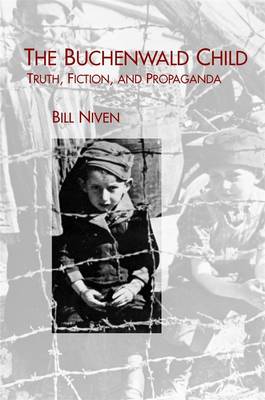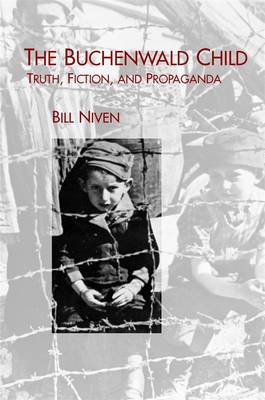
- Retrait gratuit dans votre magasin Club
- 7.000.000 titres dans notre catalogue
- Payer en toute sécurité
- Toujours un magasin près de chez vous
- Retrait gratuit dans votre magasin Club
- 7.000.0000 titres dans notre catalogue
- Payer en toute sécurité
- Toujours un magasin près de chez vous
Description
For its leaders, the German Democratic Republic was founded on the legacy of communist resistance to Nazism. They laid particular emphasis on events at Buchenwald, where communist-led prisoners allegedly threw off the fascist yoke in a heroic act of self-liberation (although in reality they were liberated by the American army). A key strand in the Buchenwald narrative was the tale of the rescue by communist prisoners of a three-year-old Jewish prisoner, Stefan Jerzy Zweig. His story became a powerful focus for the country's celebration of its antifascist past. Bruno Apitz's novel Naked among Wolves, which describes Zweig's rescue, was published in 1958 and became an immediate bestseller. It was later adapted into a highly successful cinema film, and became a staple of the school curriculum. In 1963, a campaign to find Zweig -- by this time a grown man -- met with success when he was located in Lyon and offered the chance to study in the GDR. Bill Niven sets out to establish what really happened to Zweig in Buchenwald. Why was he protected by adult prisoners, and at what price? (There is evidence that a Sinto boy was sent to Auschwitz in Zweig's place, perhaps as a result of the influence of communist prisoners, evidence that was suppressed in the GDR.) Niven explores how Zweig's story was presented in East Germany and examines what that reveals about the country's understanding -- and use of -- the Nazi past and the Holocaust. He then examines the postunification reception of Zweig's story: in a unified Germany dominated by west Germans, the GDR's deployment of the story has come in for heavy criticism -- which in turn serves the politicized end of condemning East Germany's approach to the Nazi past. Bill Niven is Professor of Contemporary German History at the Nottingham Trent University, UK.
Spécifications
Parties prenantes
- Auteur(s) :
- Editeur:
Contenu
- Nombre de pages :
- 258
- Langue:
- Anglais
- Collection :
- Tome:
- n° 3
Caractéristiques
- EAN:
- 9781571134042
- Date de parution :
- 01-06-09
- Format:
- Livre broché
- Format numérique:
- Trade paperback (VS)
- Dimensions :
- 152 mm x 229 mm
- Poids :
- 353 g

Les avis
Nous publions uniquement les avis qui respectent les conditions requises. Consultez nos conditions pour les avis.






